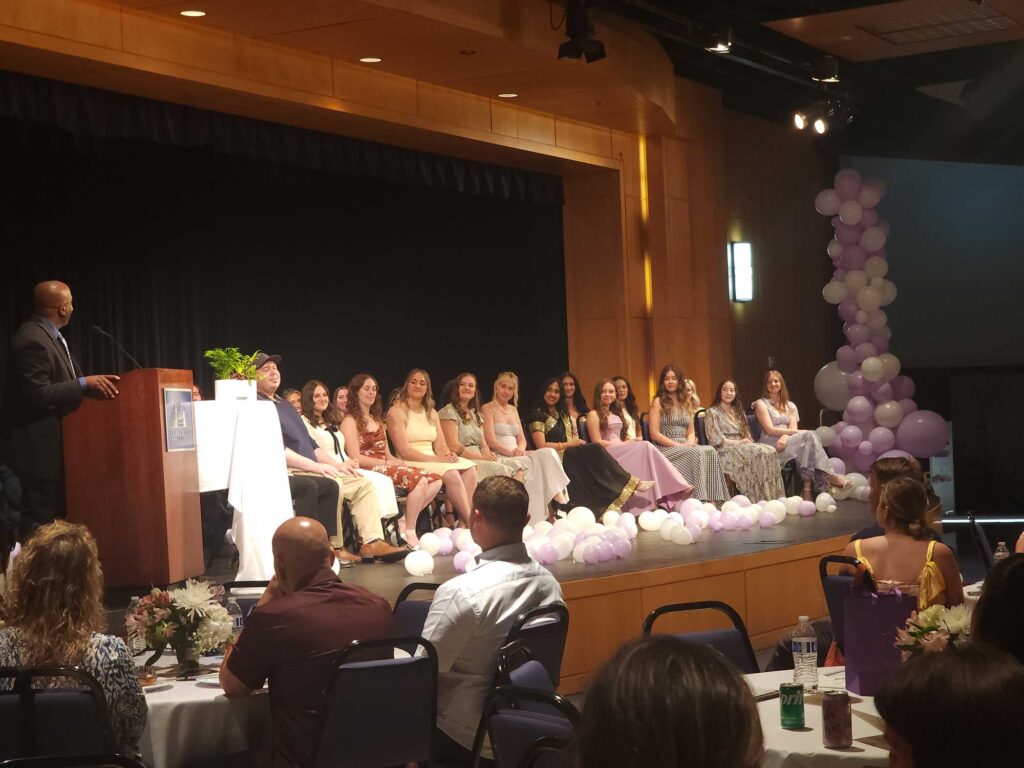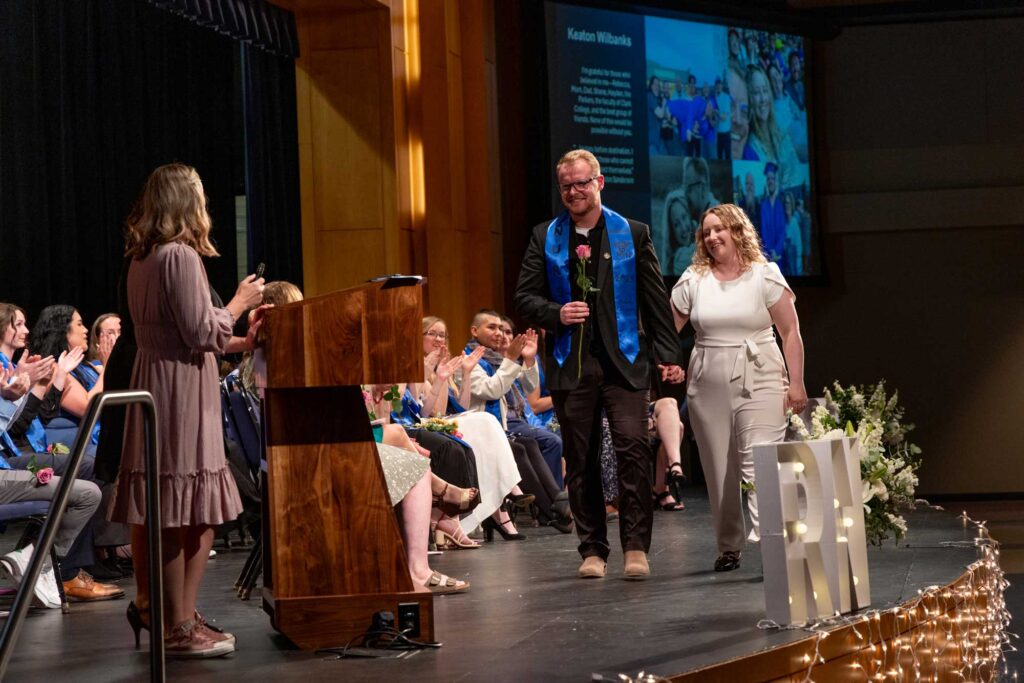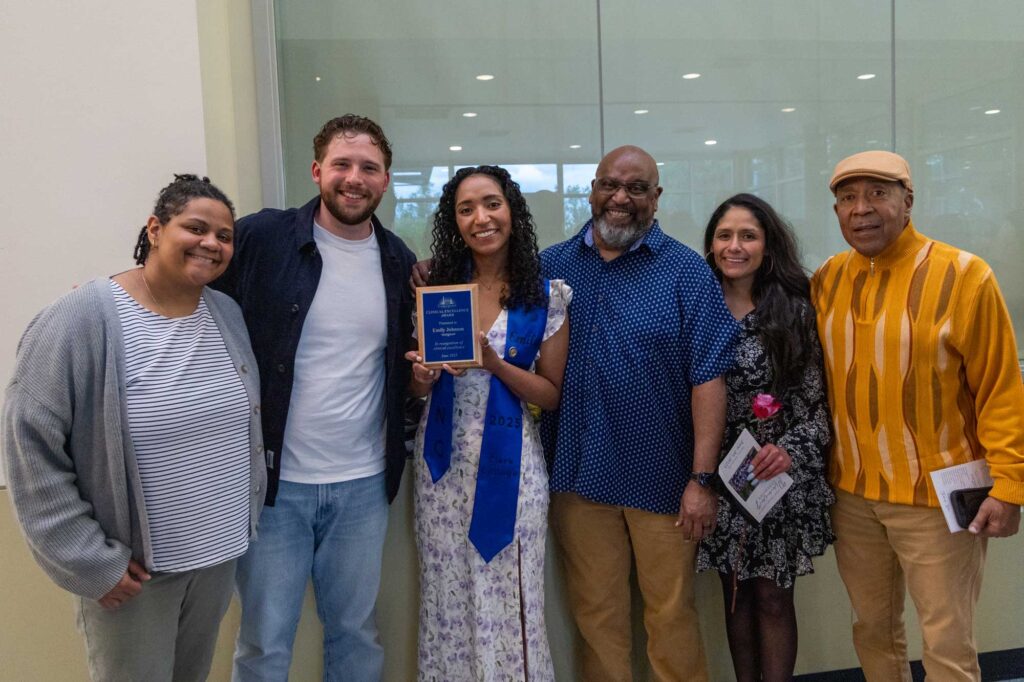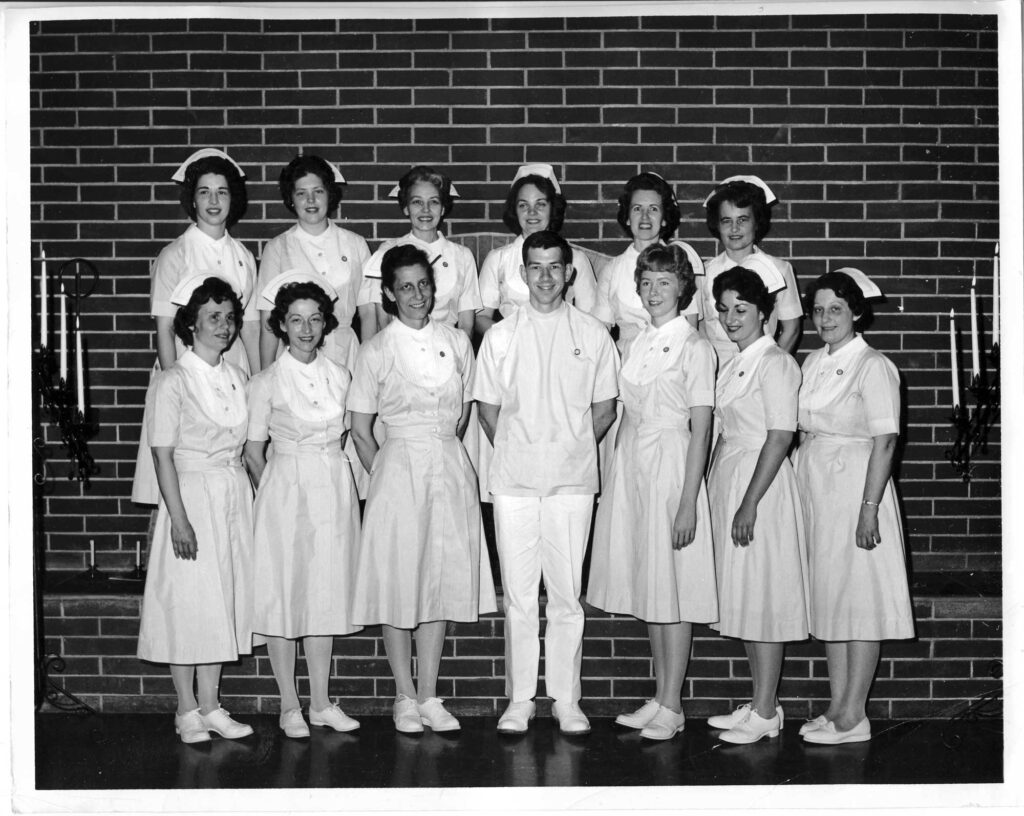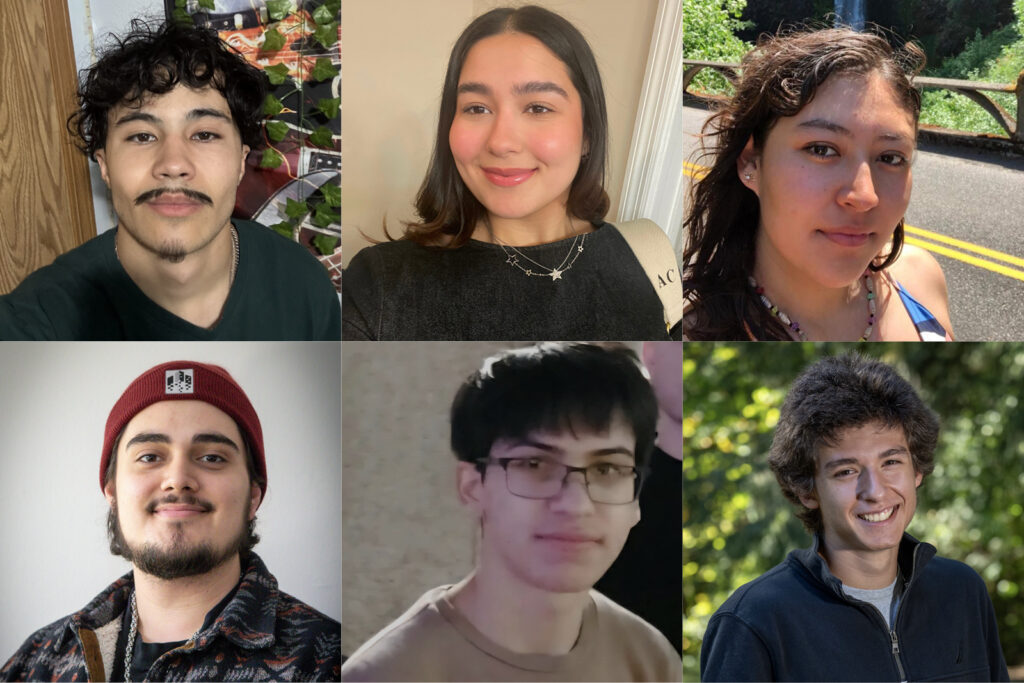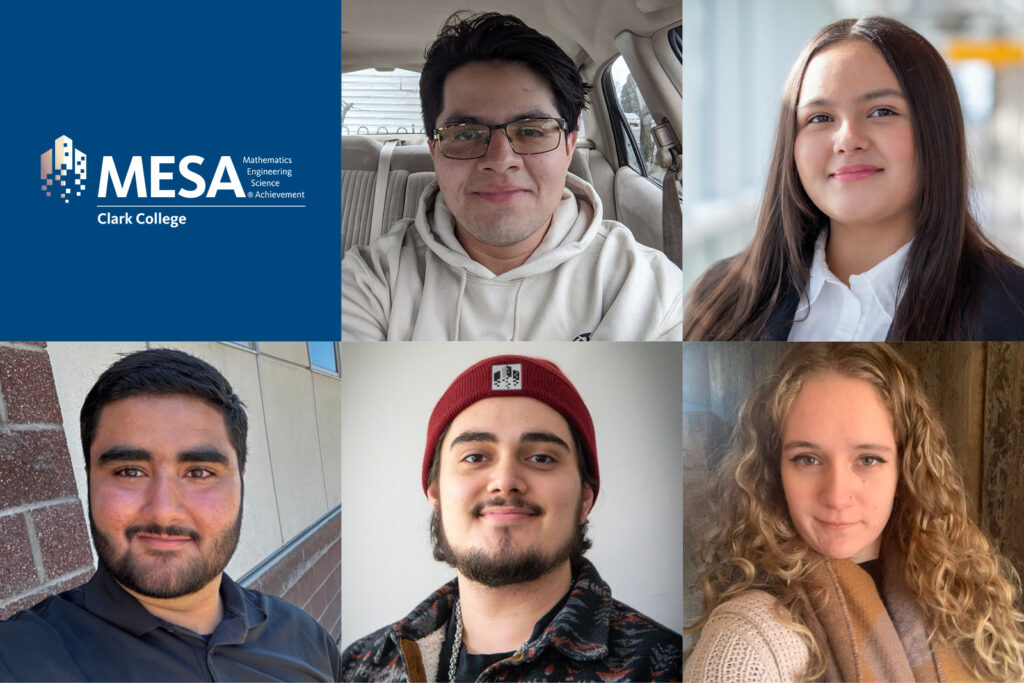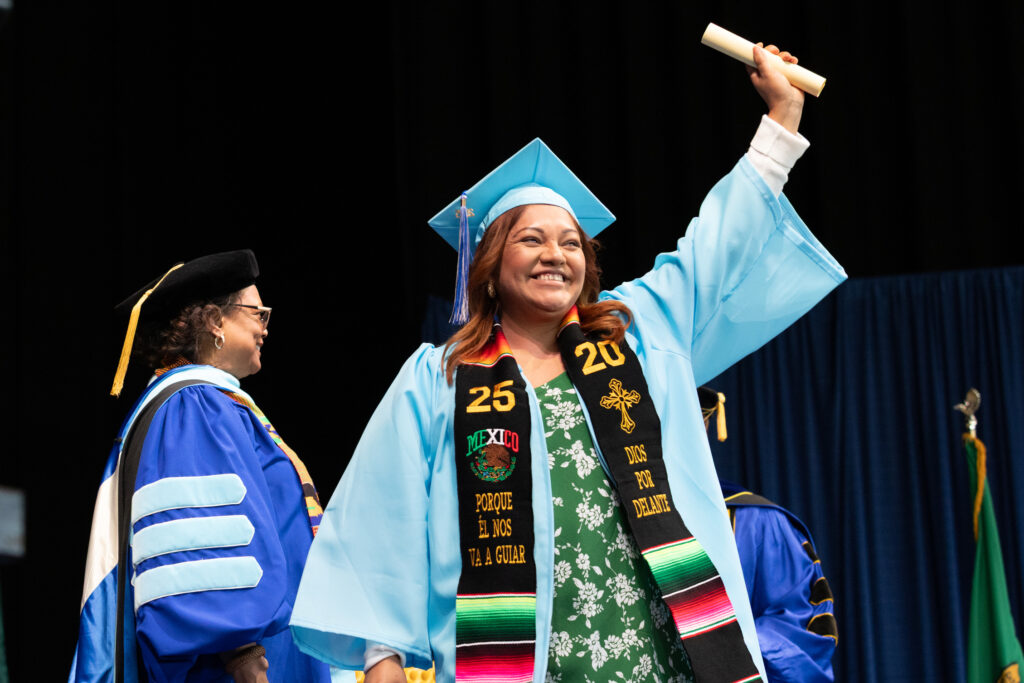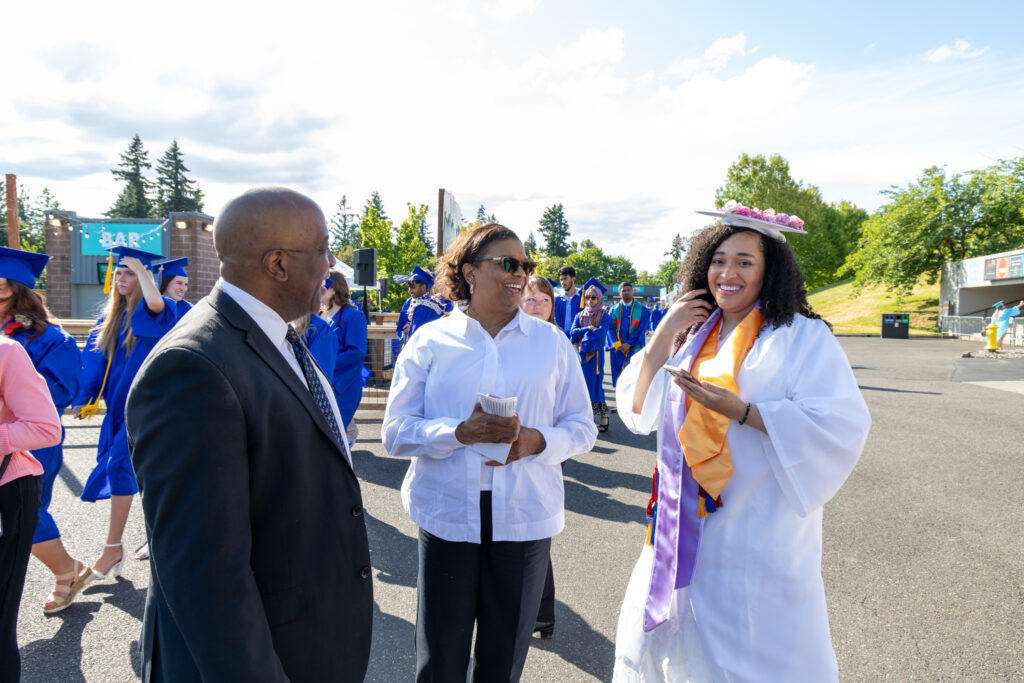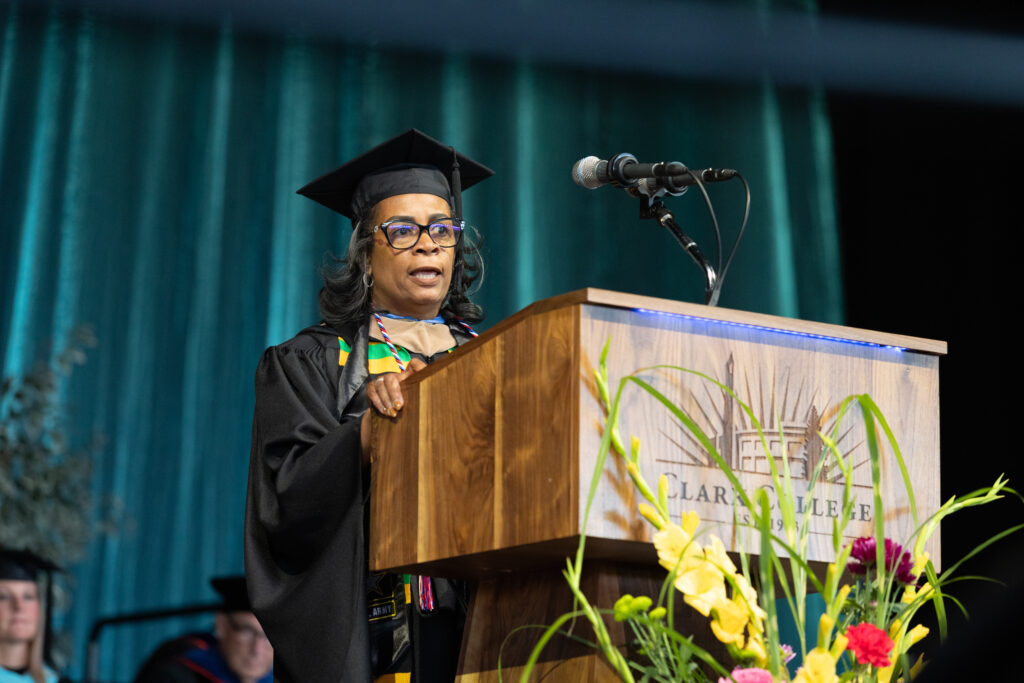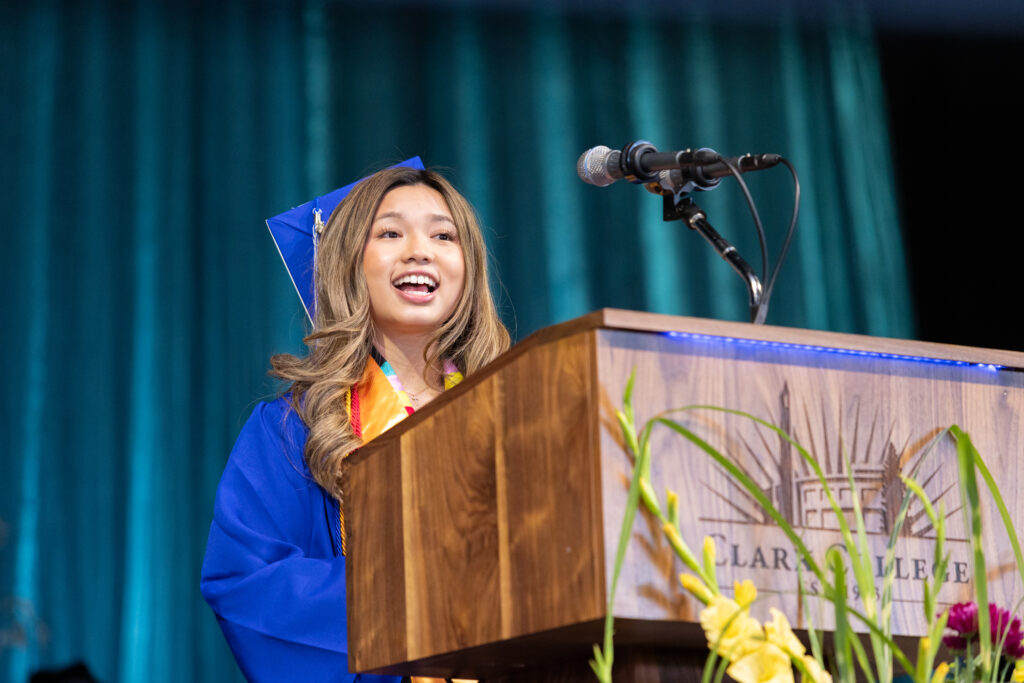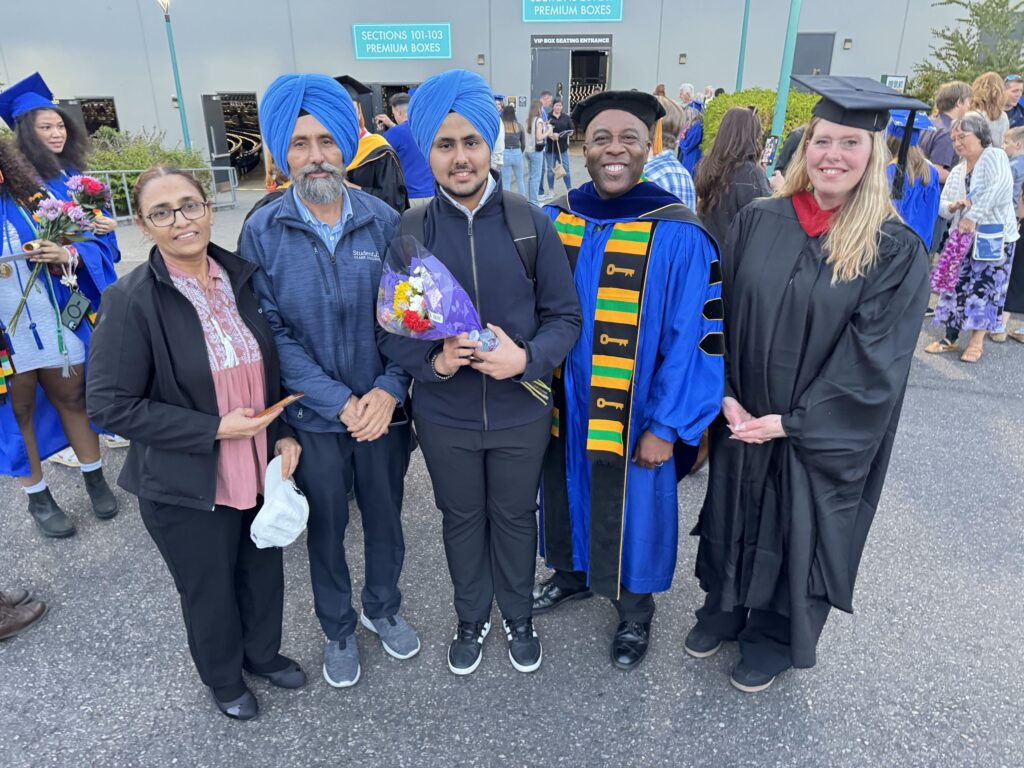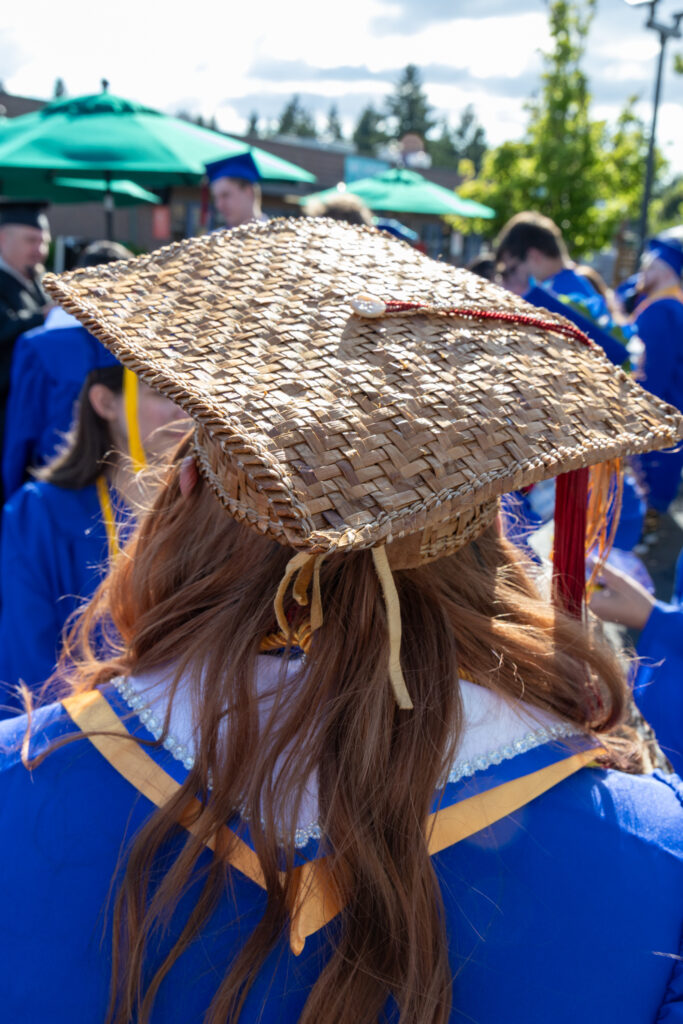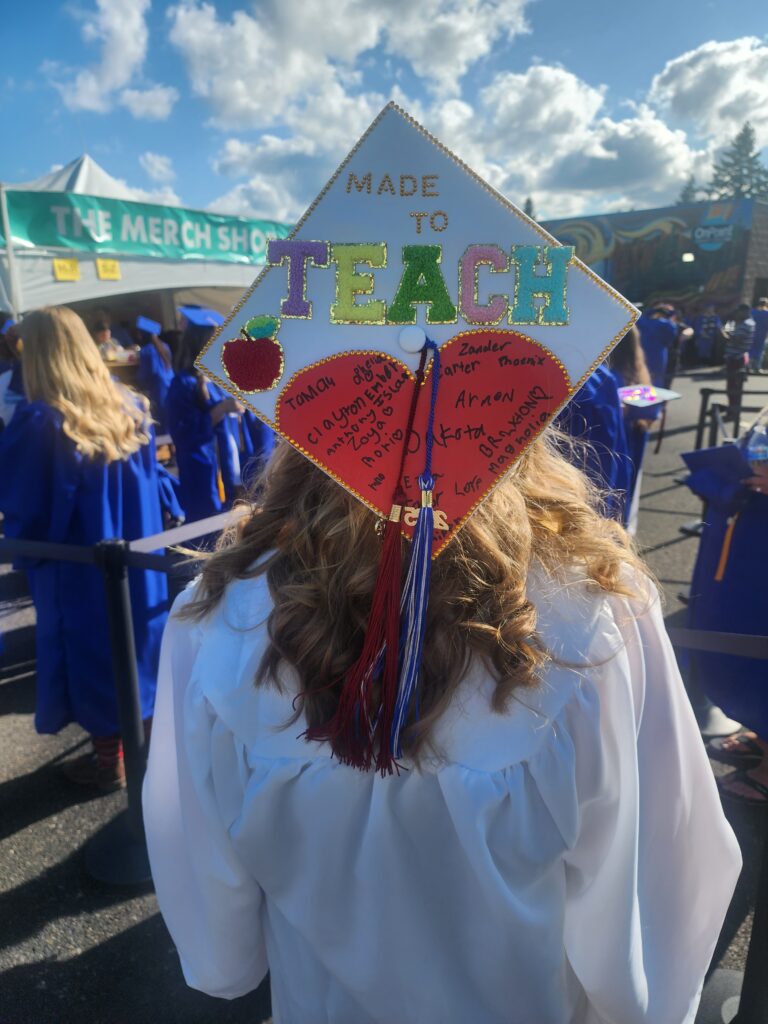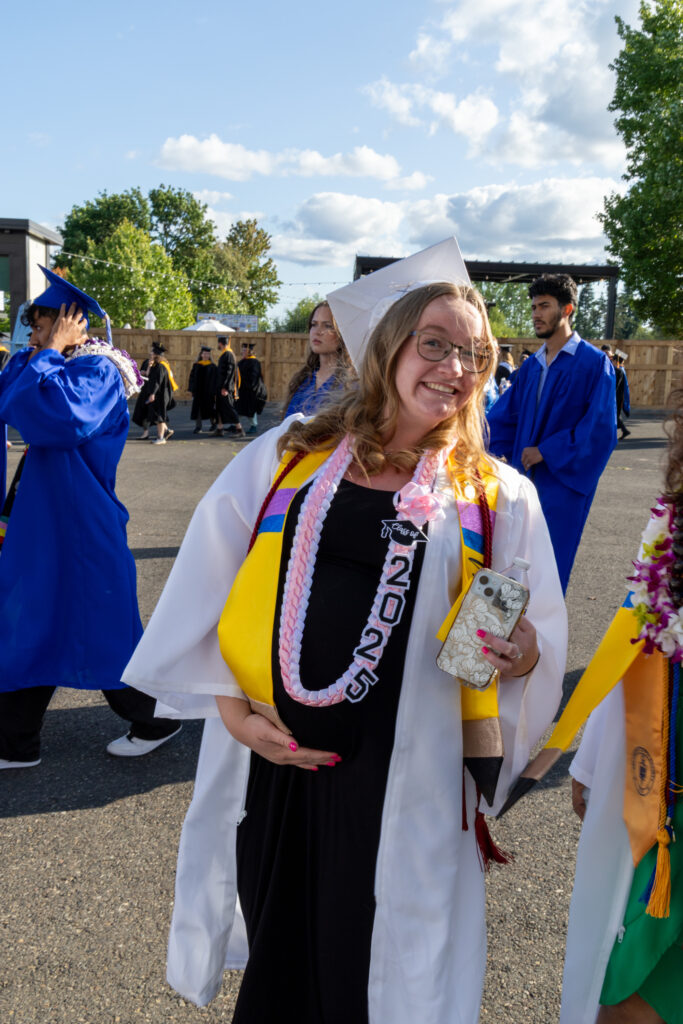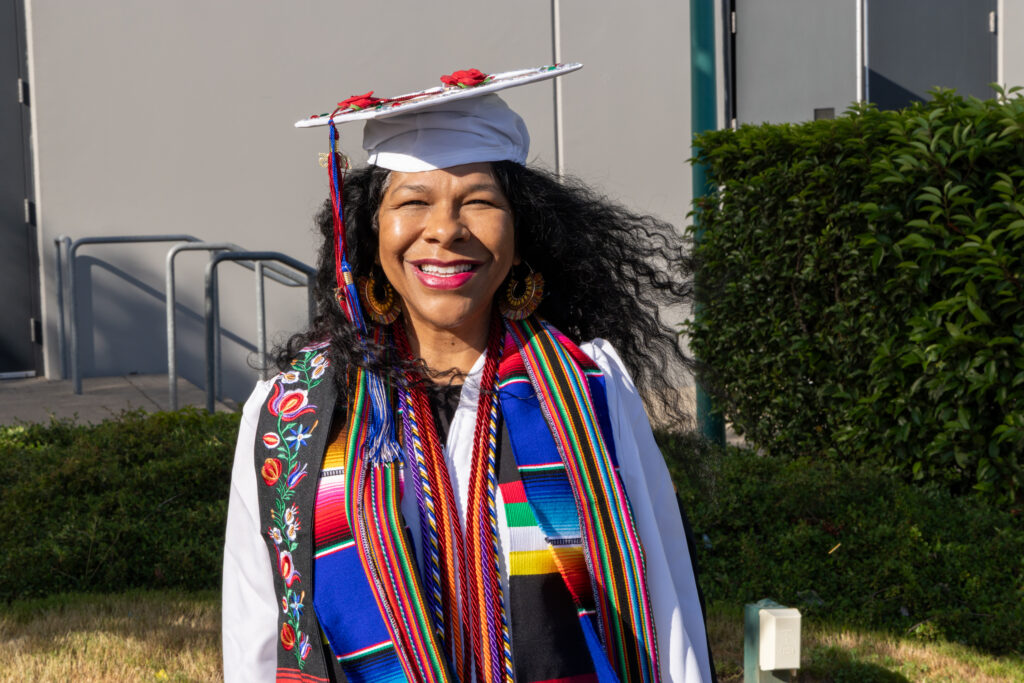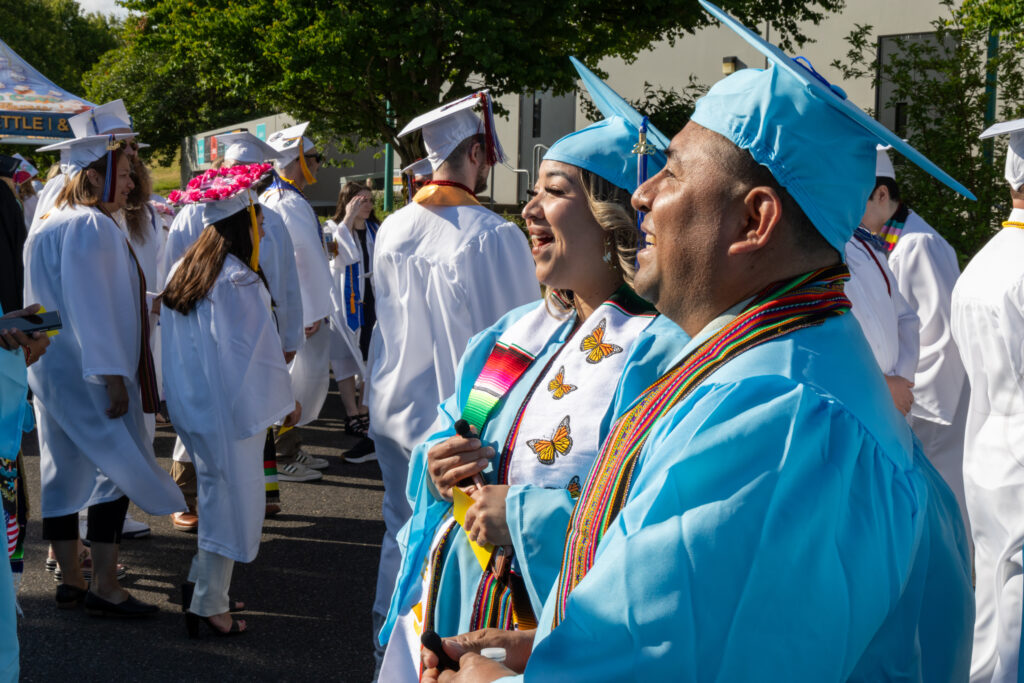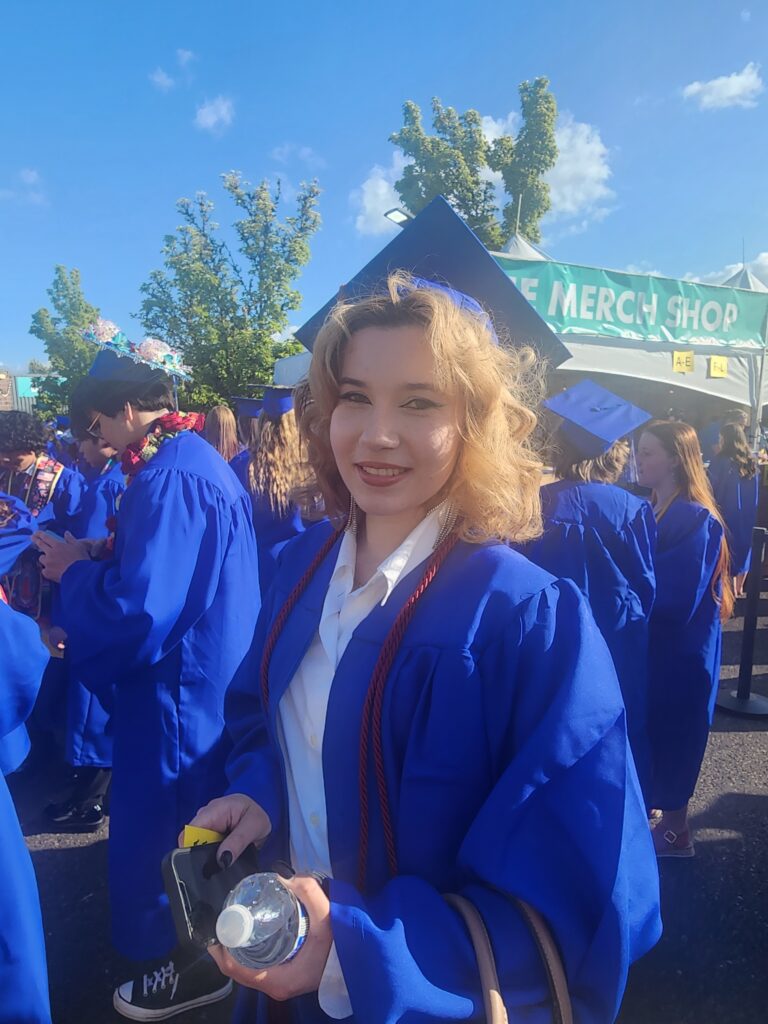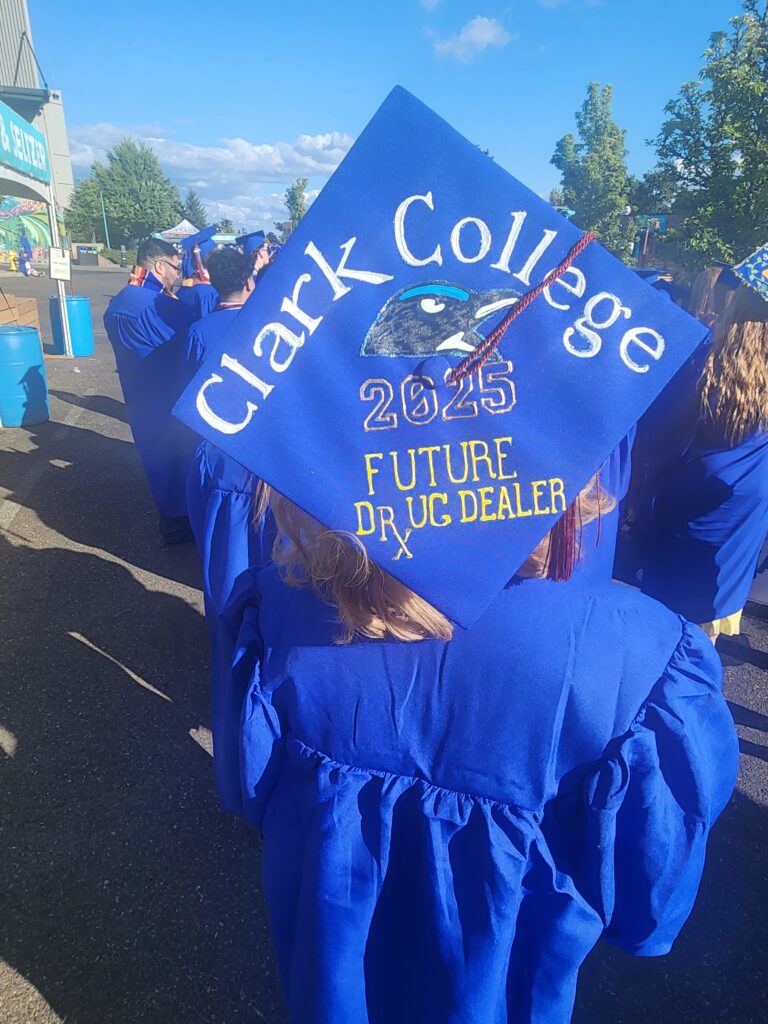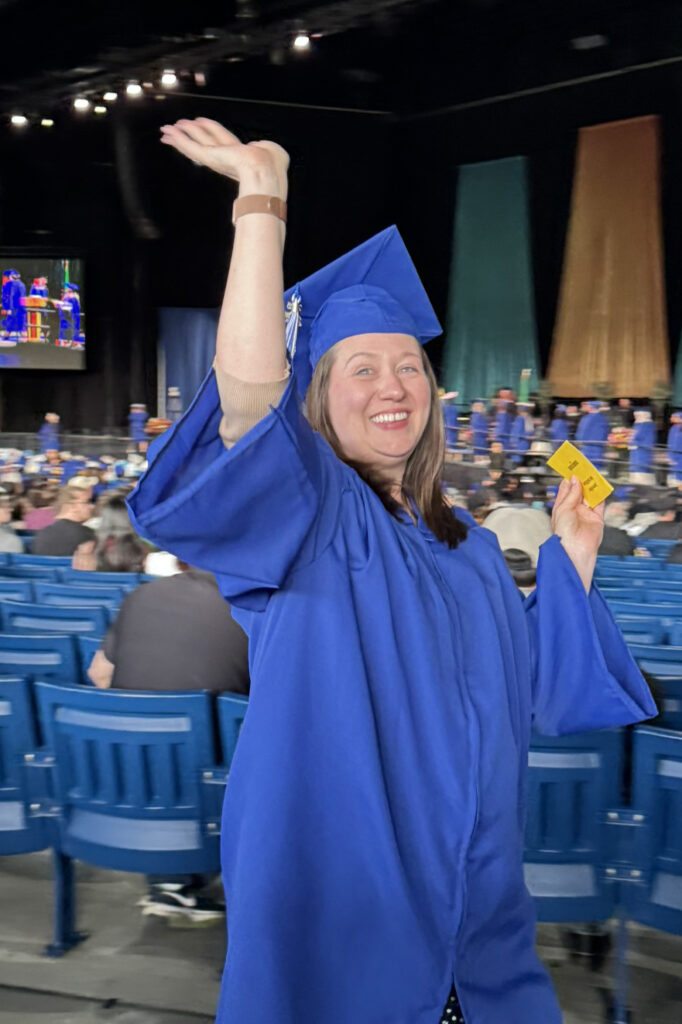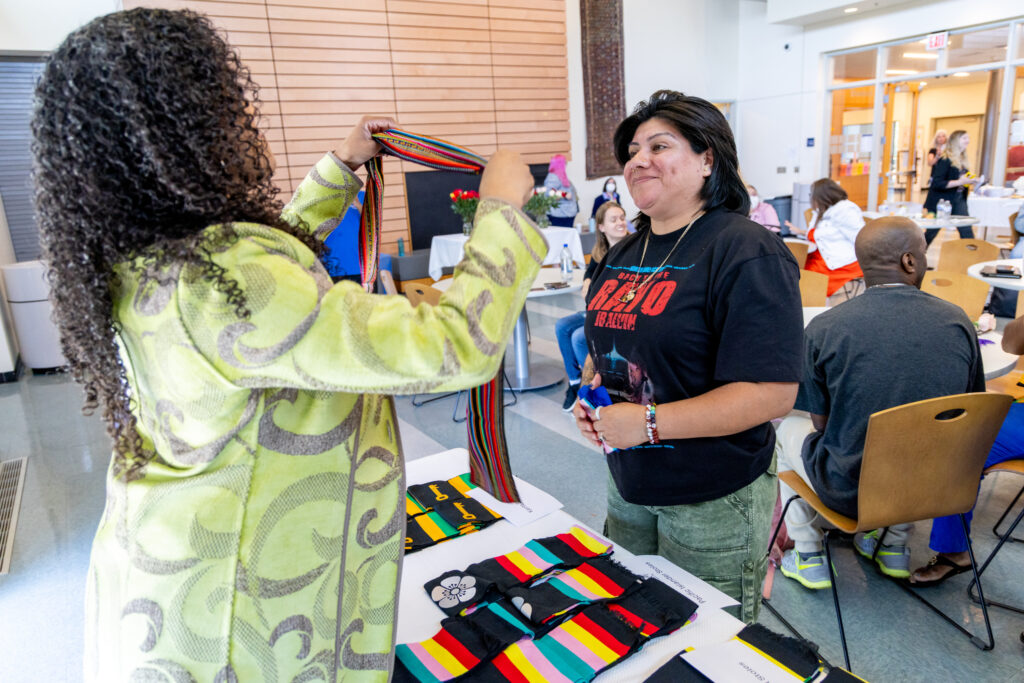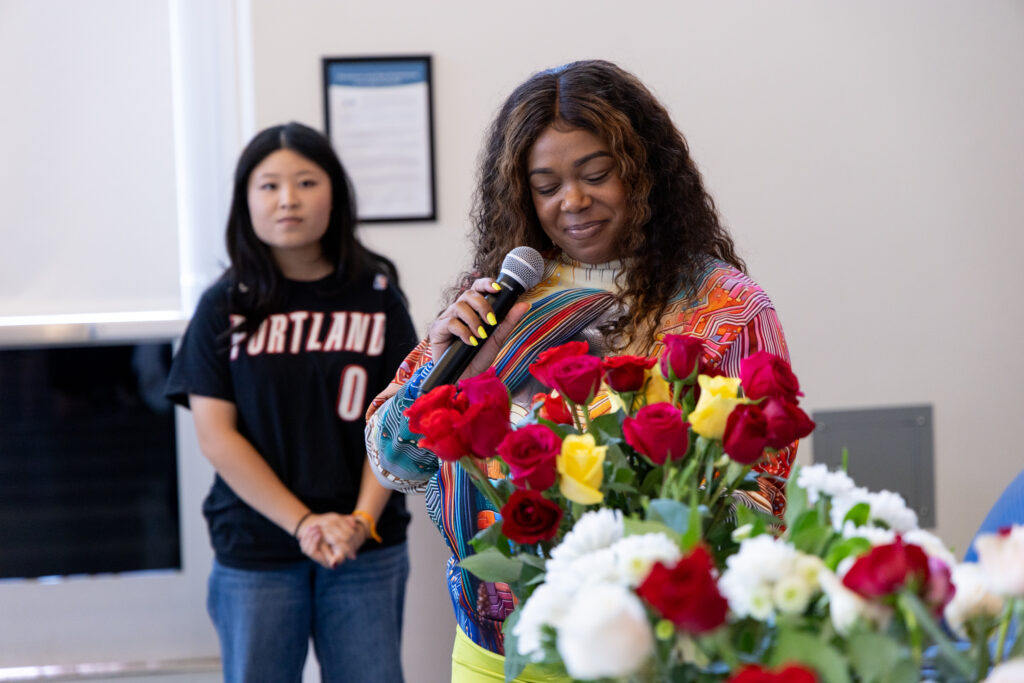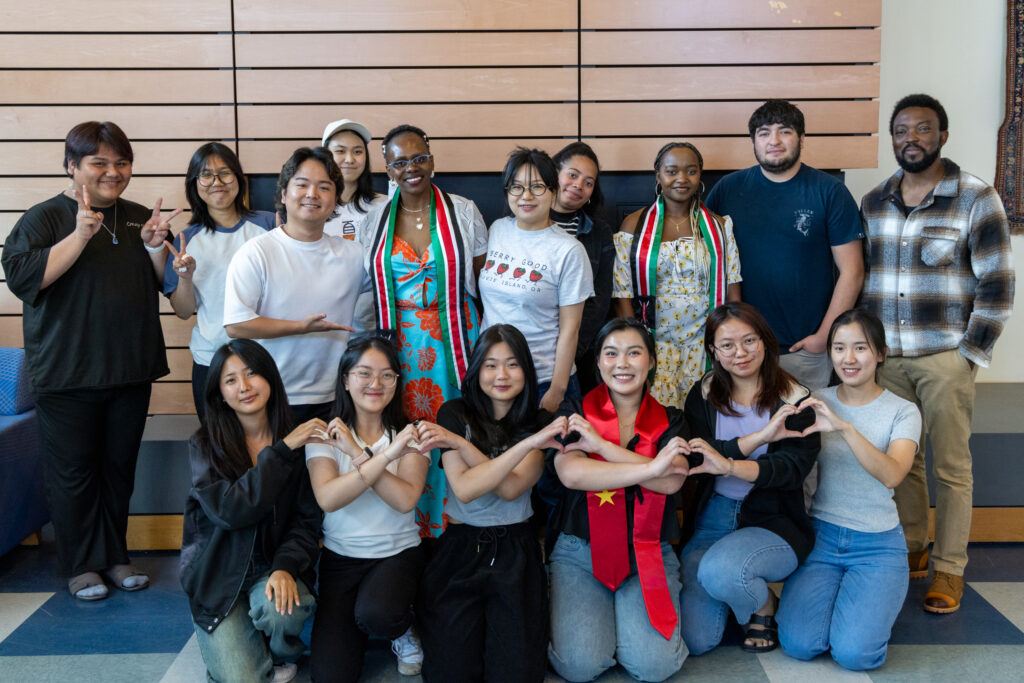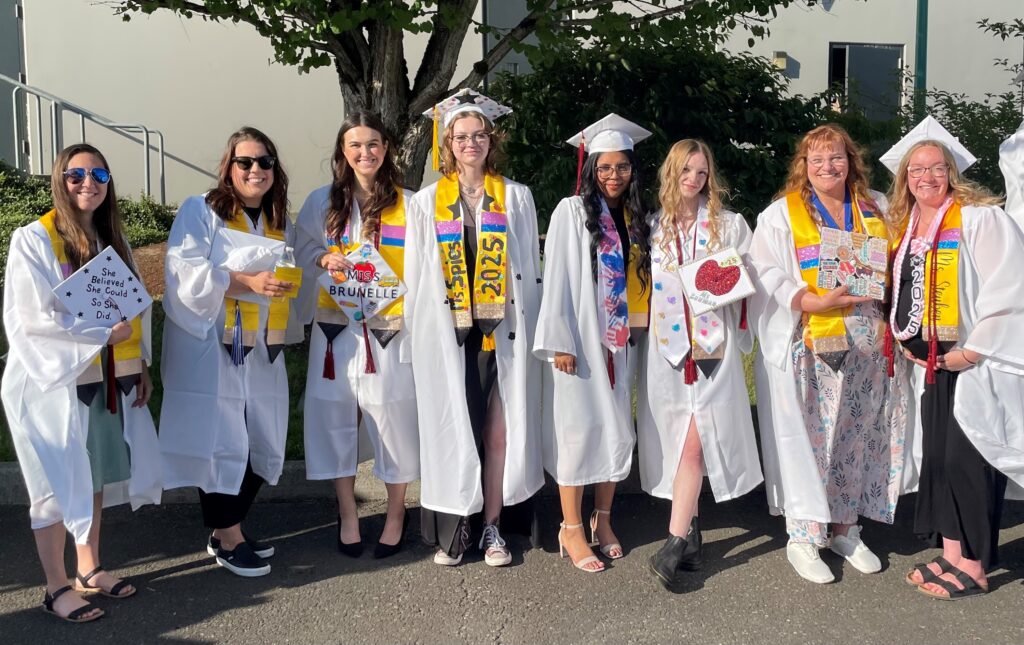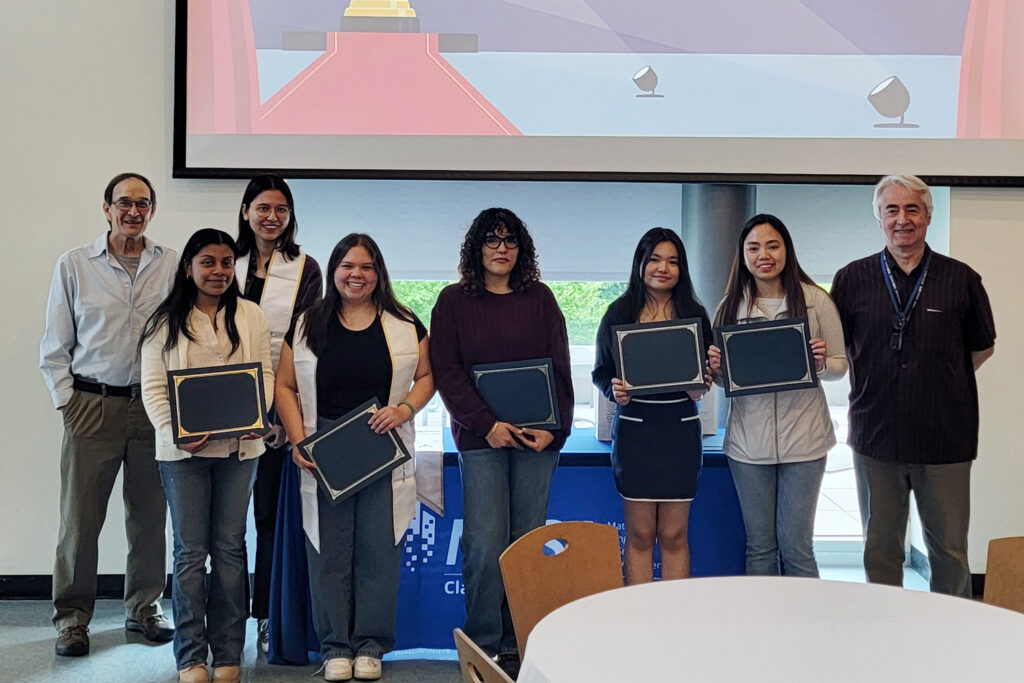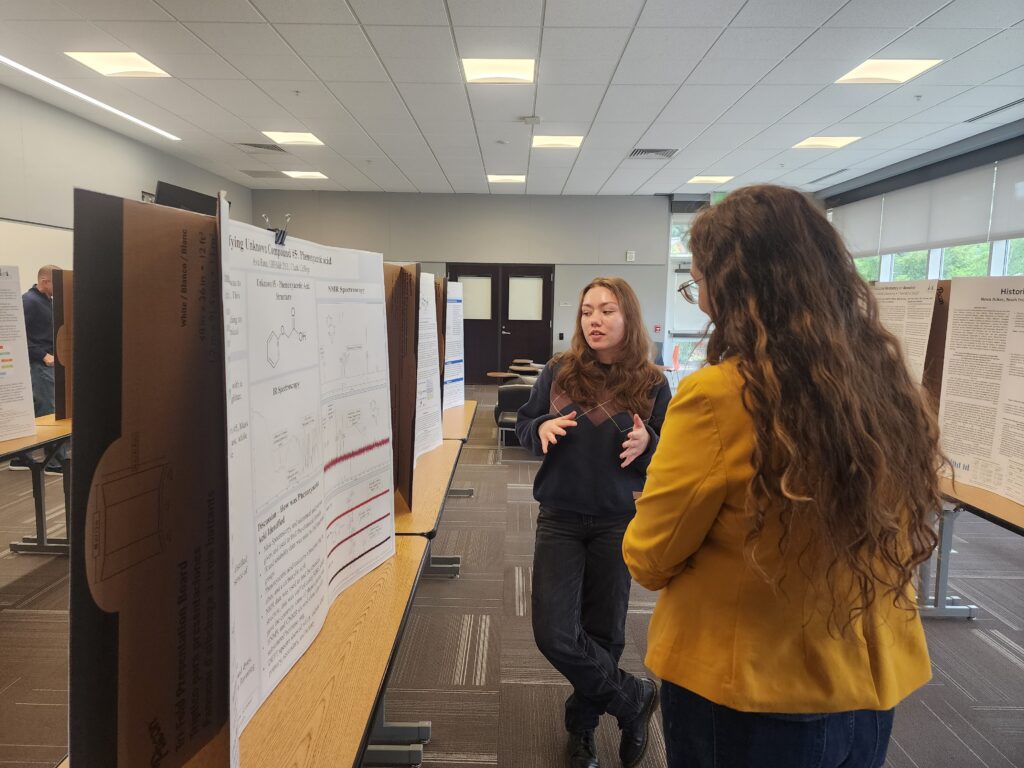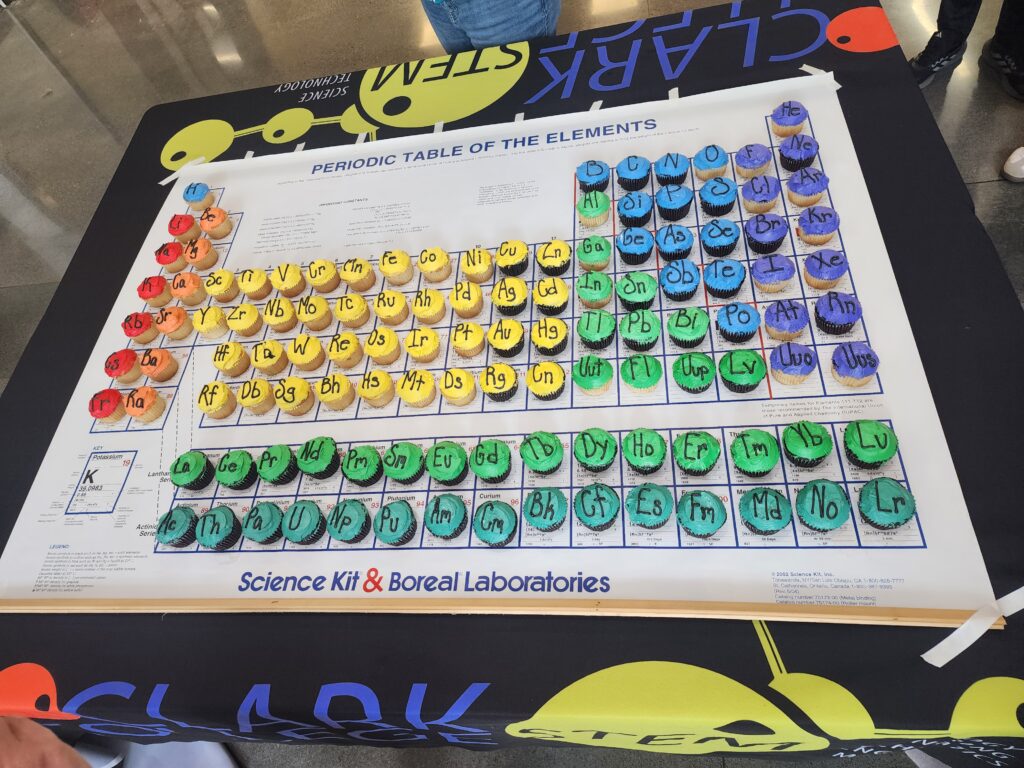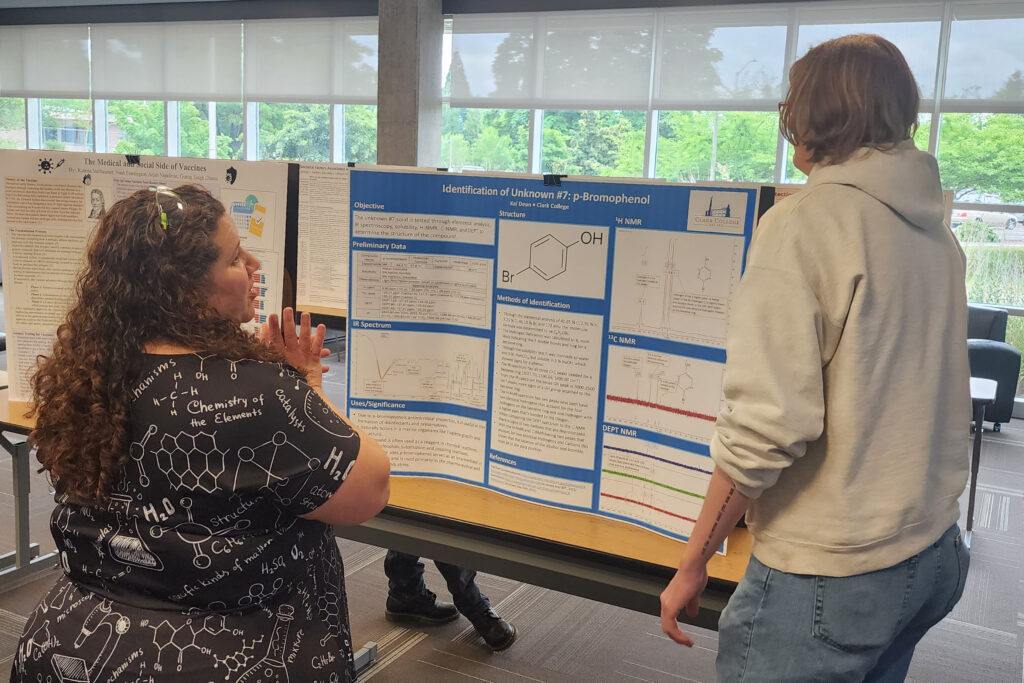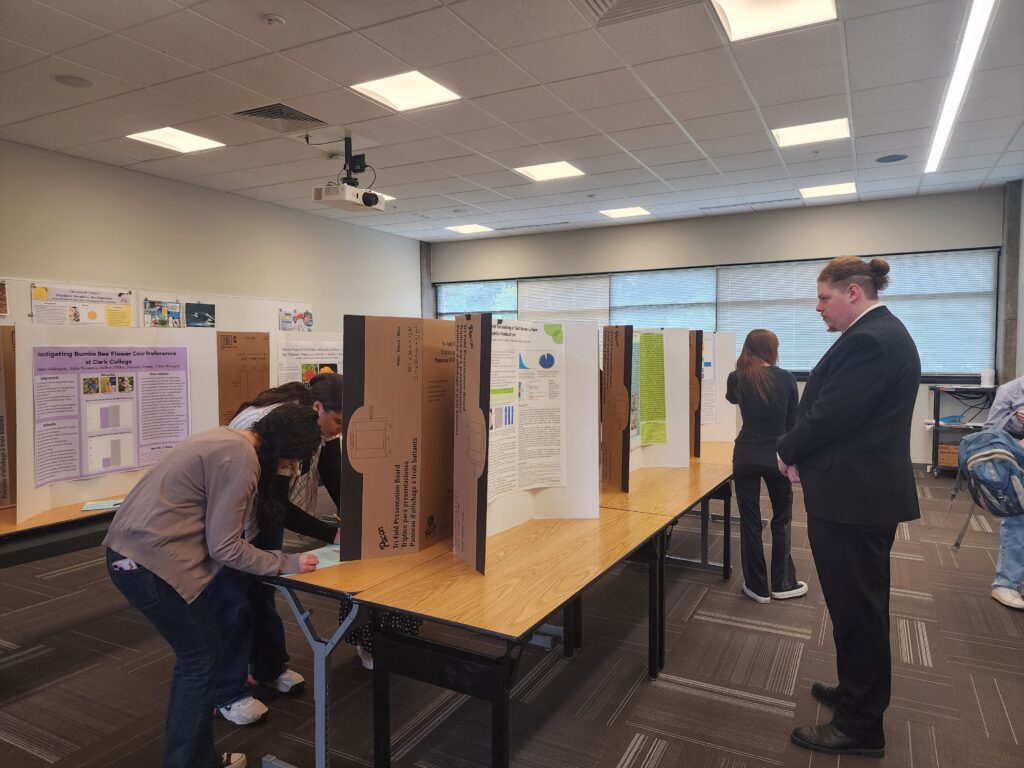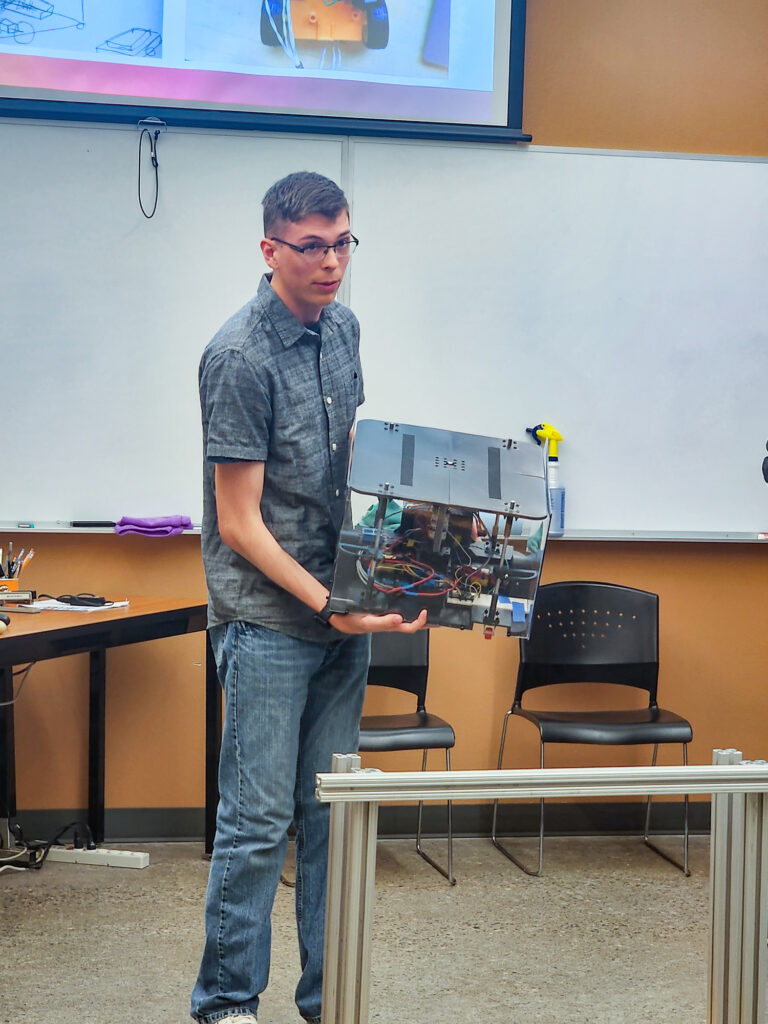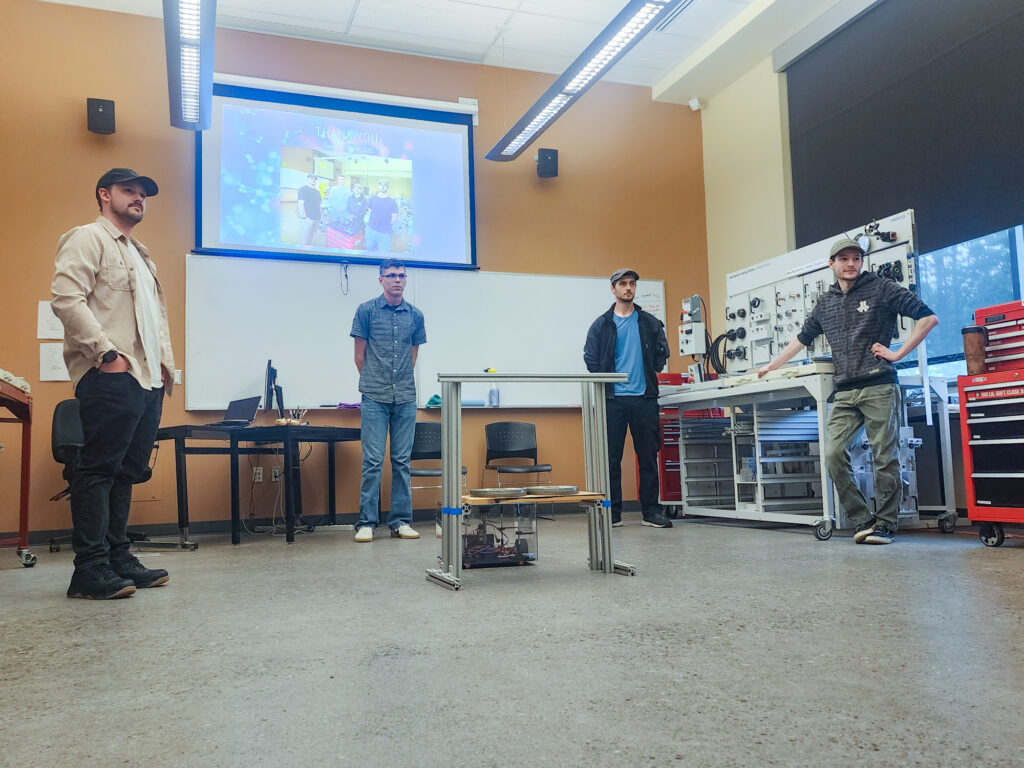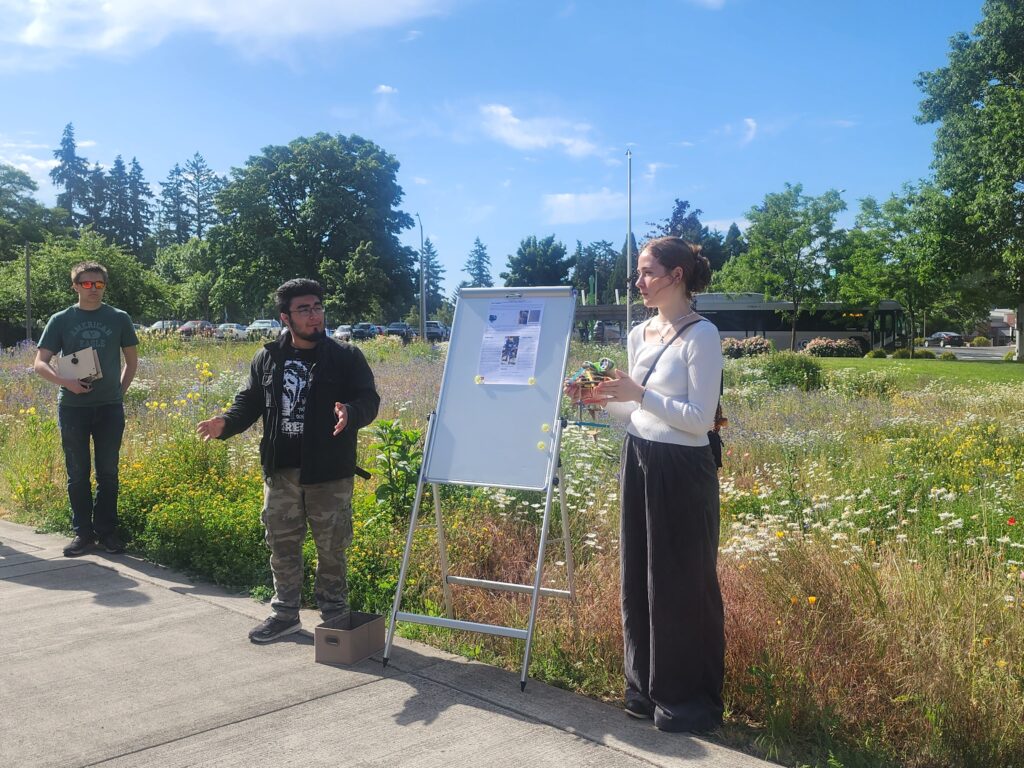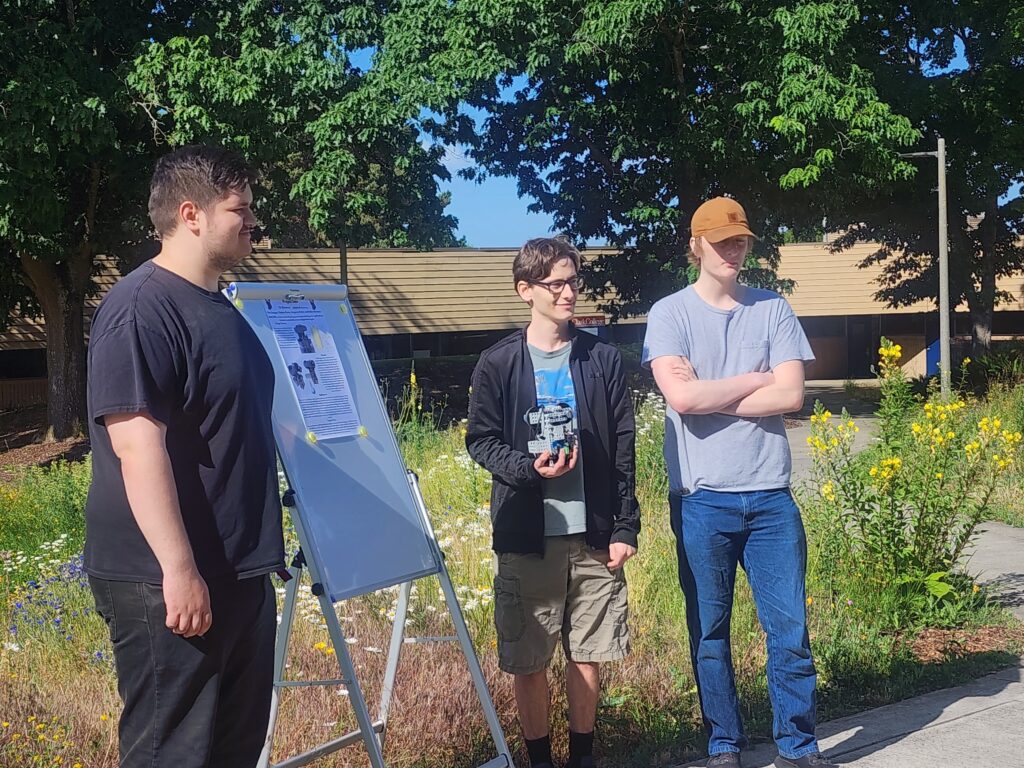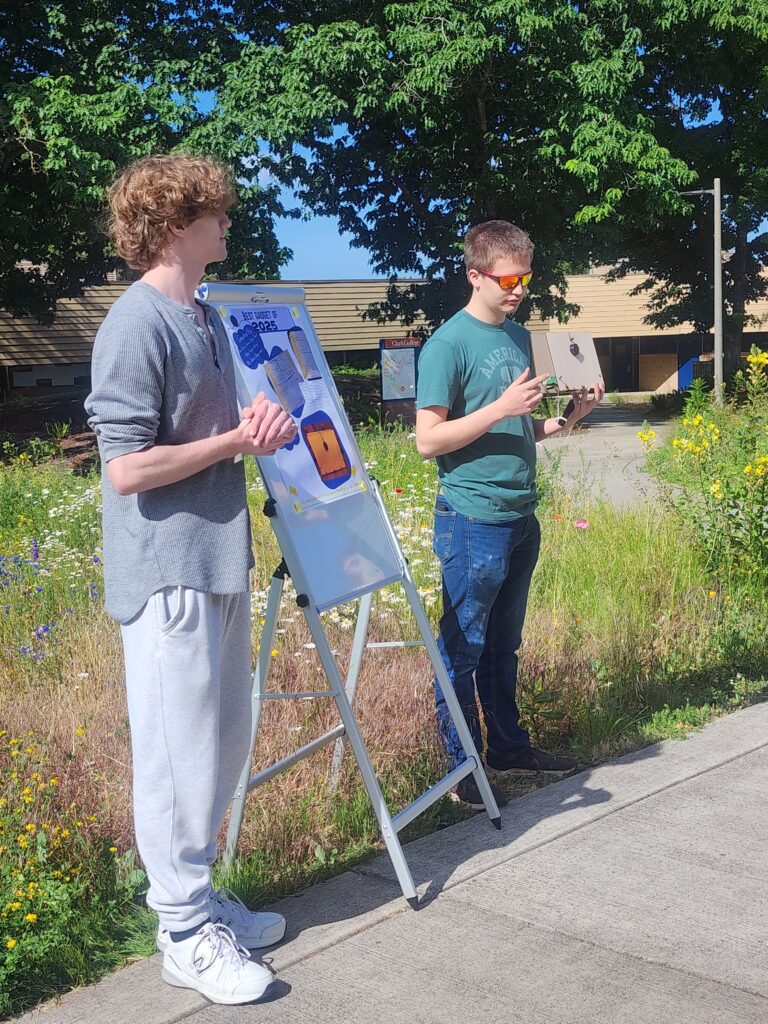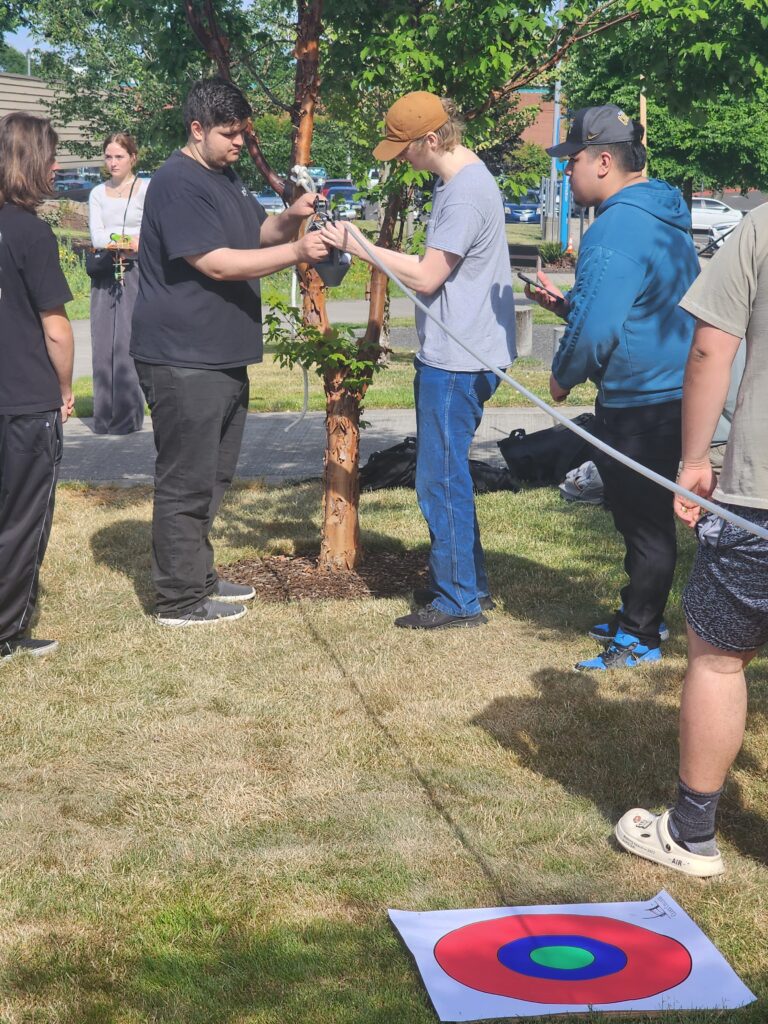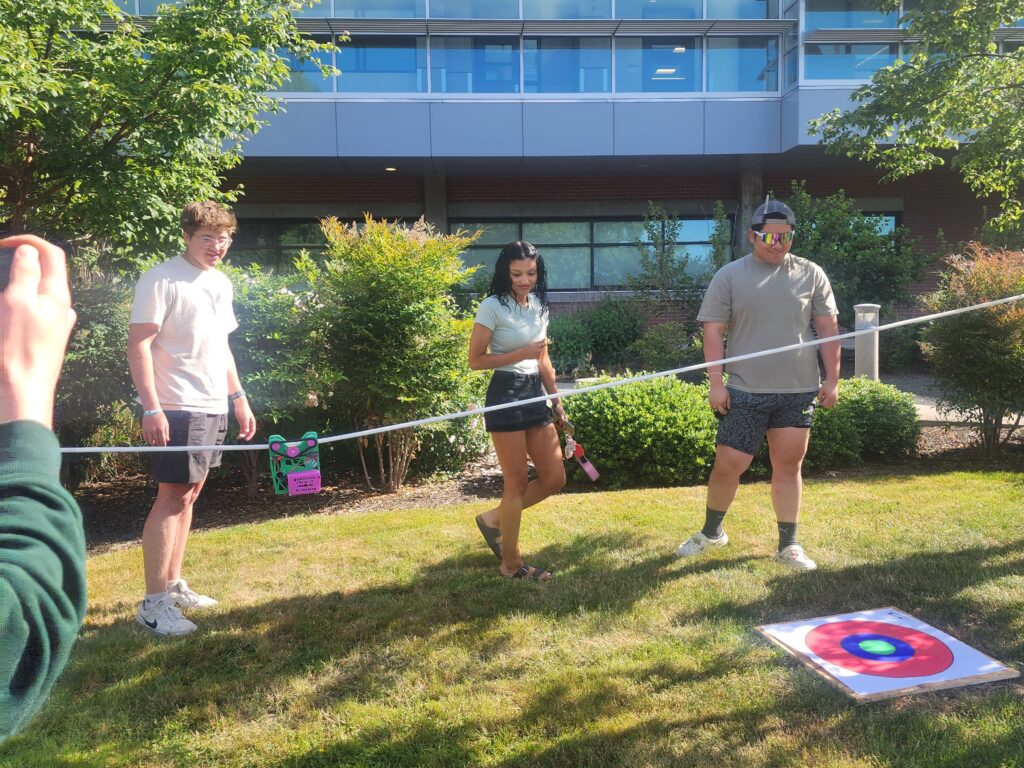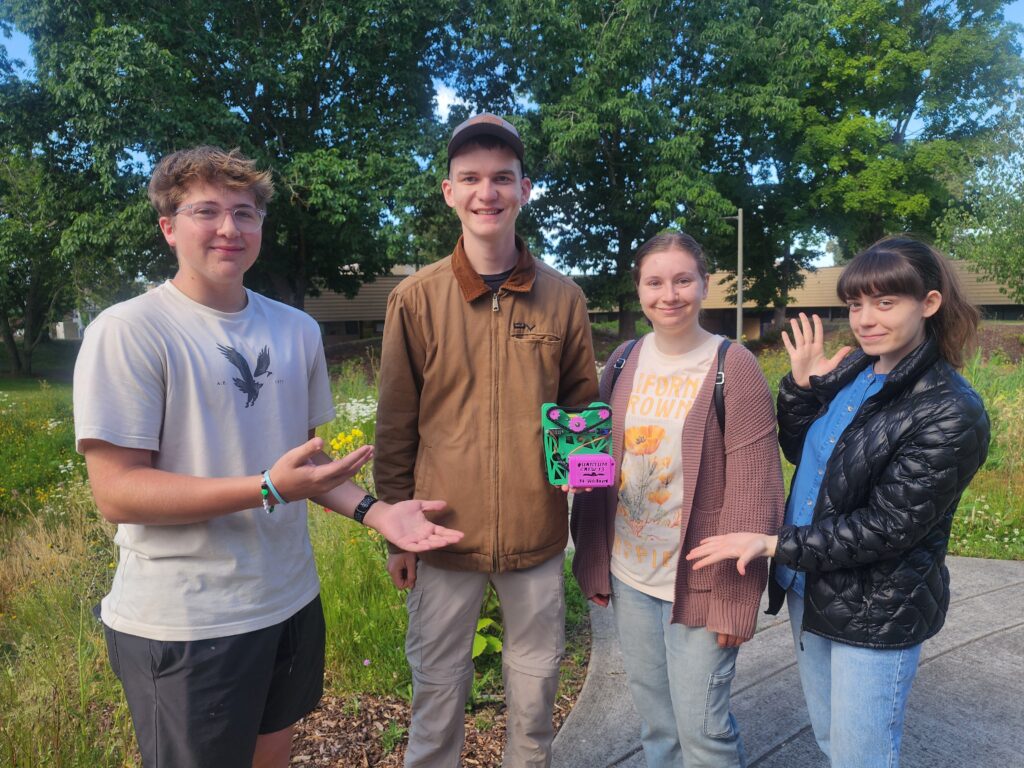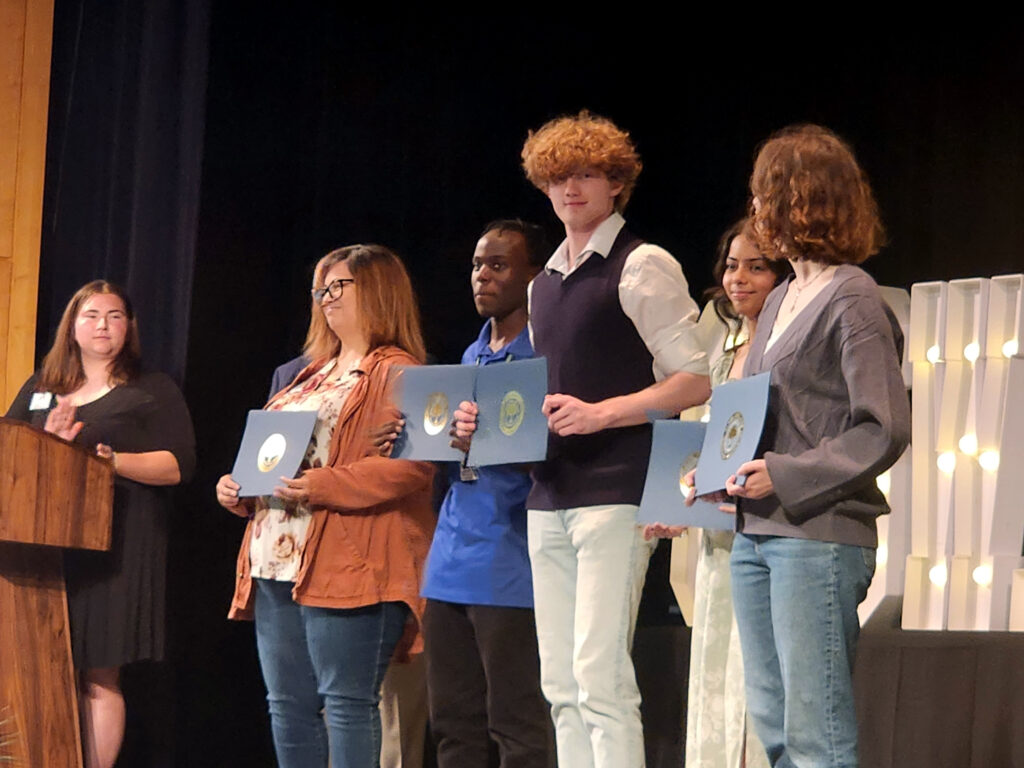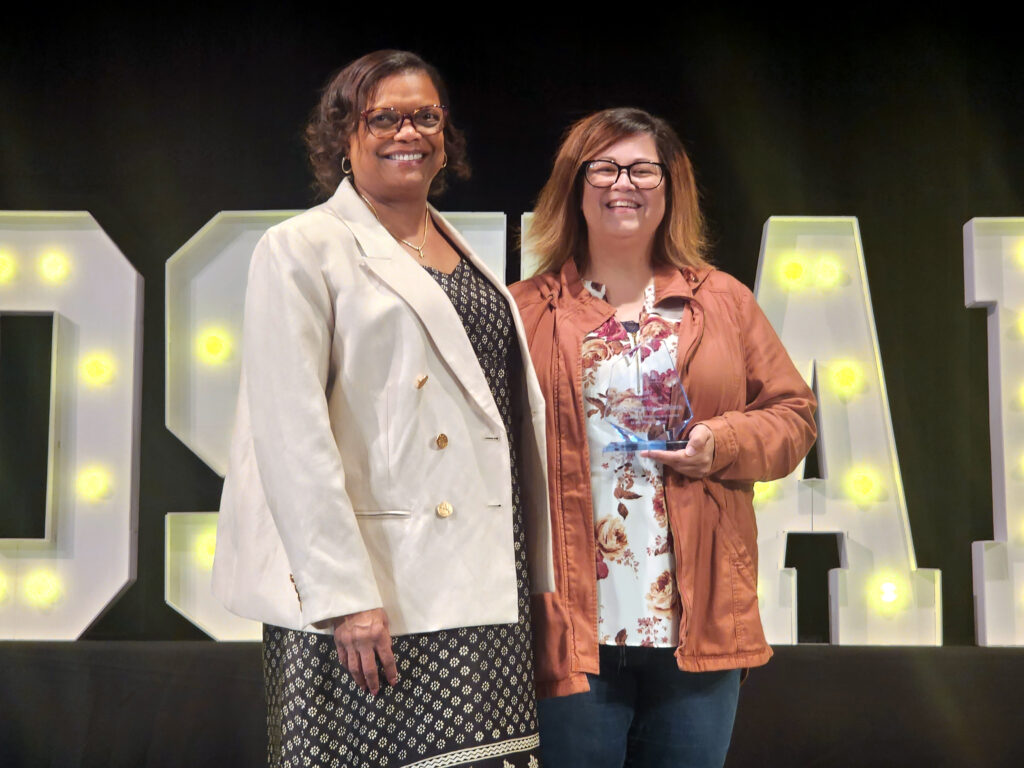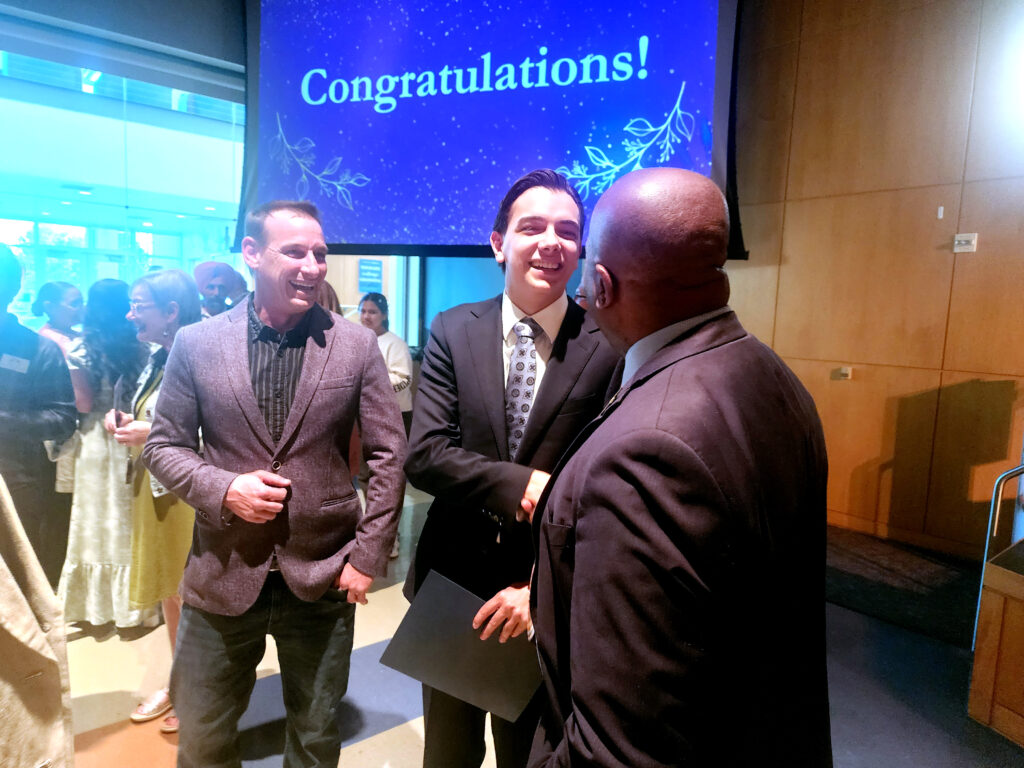Clark’s Camp Opens Healthcare Door
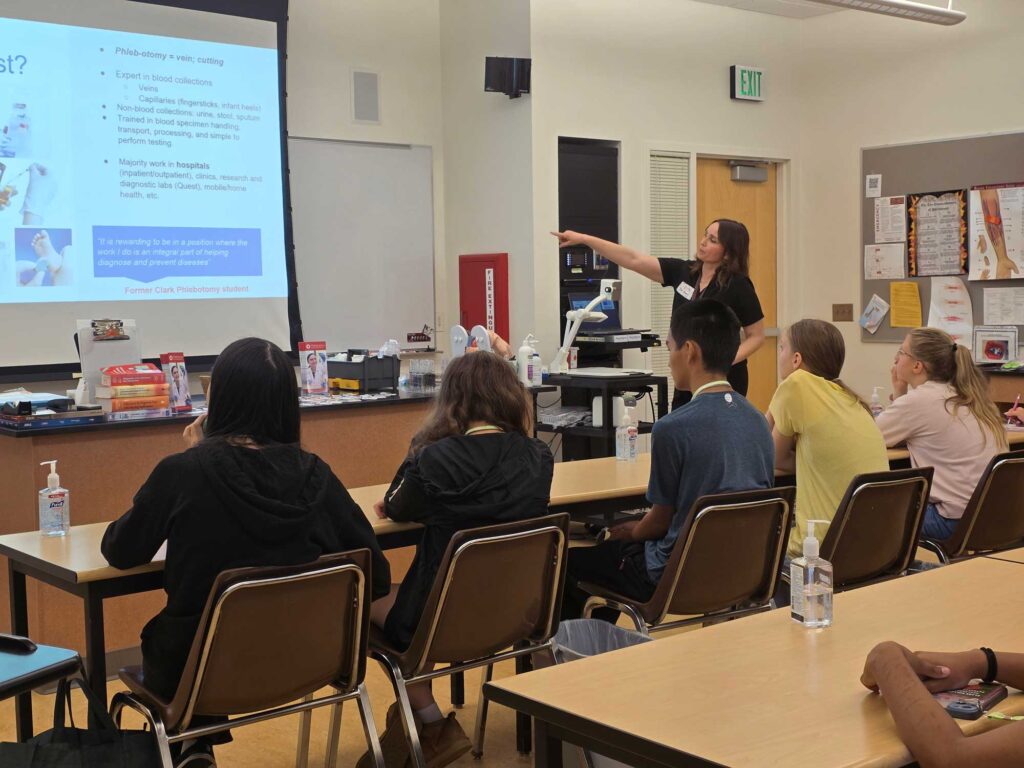
Echoes of shouts and laughter filled the gymnasium in the O’Connell Sports Center – it was the first day of Clark’s Healthcare Pathway Camp, and the energy was high!
For three days, local middle and high school students immersed themselves in the healthcare field, exploring a wide range of careers through hands-on activities, interactive rotations, and insightful conversations with industry professionals. This camp, now in its fourth year and free for participants – thanks to generous funding by Guided Pathways – sparked curiosity, and perhaps even a calling in a new generation of healthcare workers.
Game On
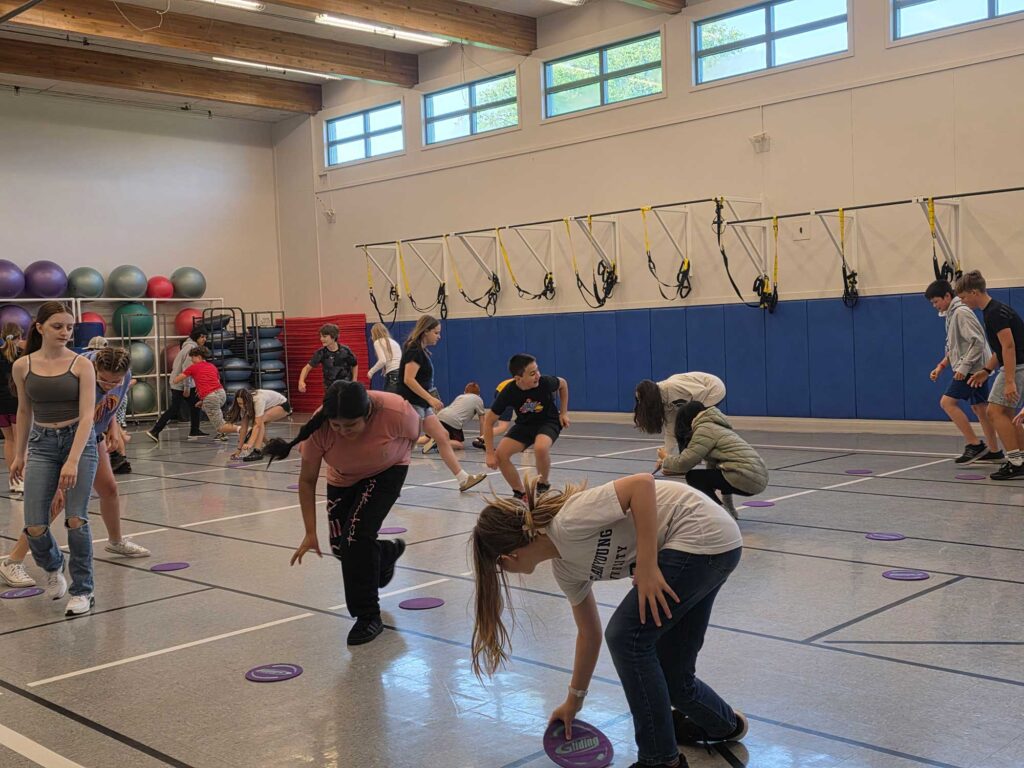
From the moment students walked into the gym, the vibe was electric. In a mat-flipping showdown that introduced participants to the importance of physical fitness, students battled to cover the floor with their team’s mats, strategizing between rounds like seasoned athletes. It was messy, loud, and full of joy – and that was just the beginning.
That energy carried into the day’s rotations. In the health information management station, Jenga blocks became quiz questions, a giant crossword became a collaborative challenge, and even a round of Pictionary got students thinking about patient care and medical systems.
A few buildings over, students visited the Dental Hygiene Clinic, creating dental molds like pros. They asked questions about wisdom teeth with the intensity of future oral surgeons. Meanwhile, EMT hopefuls practiced CPR and how to administer an EpiPen, picking up lifesaving skills.
Sweet Stakes
Day 2 brought the campers to Clark’s building at the WSU-Vancouver campus, where the tools of the trade changed. From necessary skills to the various career pathways it can lead to, these sessions allowed students to imagine bright futures in the field.
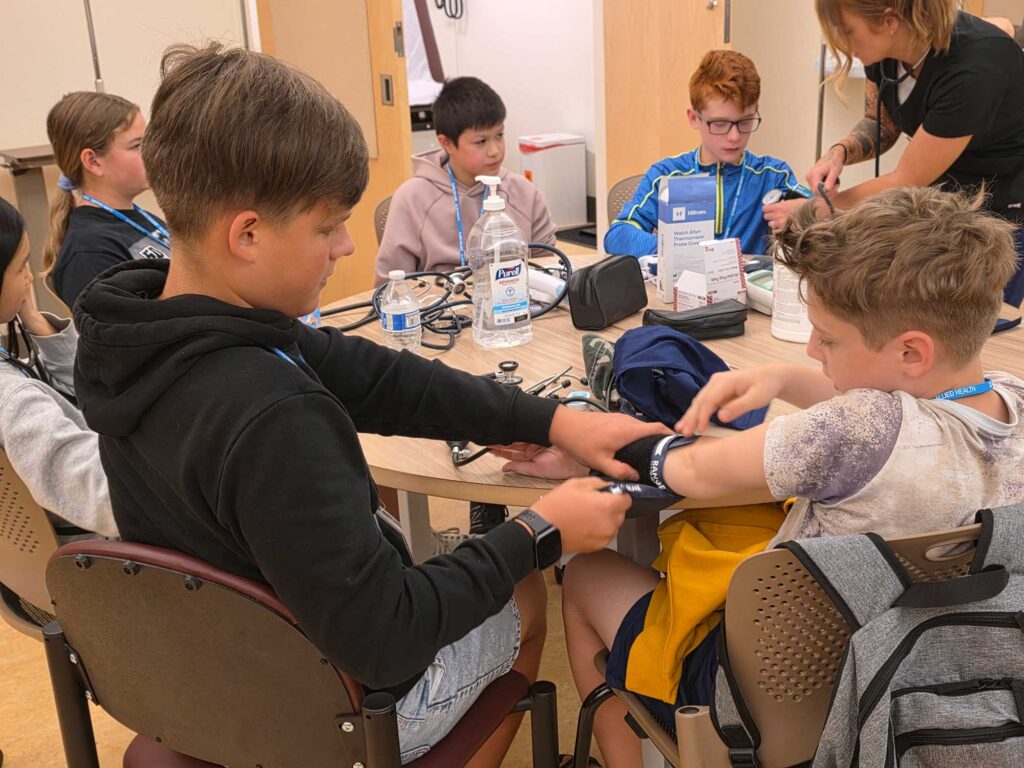
In the medical assisting rotation, students were now the ones holding the stethoscopes. They measured blood pressure, removed stitches from practice pads, tested vision, and wrapped their classmates’ arms in bandages. Some couldn’t resist texting pictures of their arms expertly wrapped in bandages to their families.
The nursing lab introduced the art of wound care and medication measuring, while phlebotomy students learned the science of blood: its components, how to handle it, and how to locate veins on practice arms. There were no actual needles, but the intensity was real.
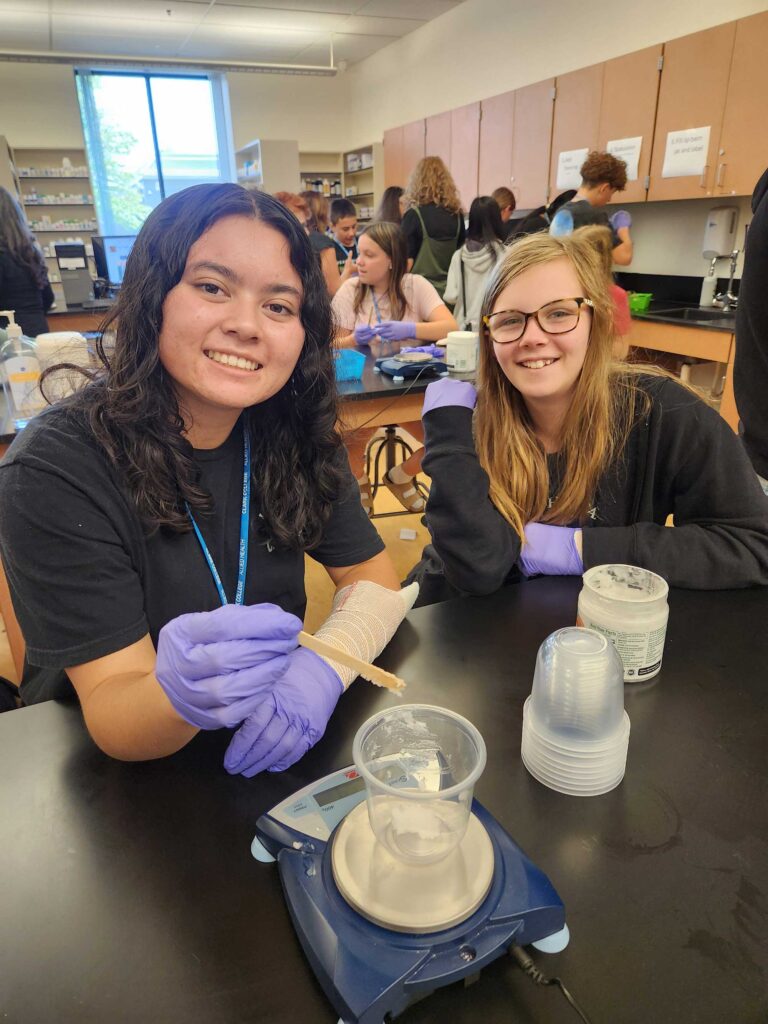
Interest in Clark’s newest surgical technology program (coming this fall) sparked a steady stream of questions for Professor Jim Reynolds, like the length of the longest surgery he had ever attended (13 hours!), the kinds of surgeries he’d participated in, and whether surgical teams get to have snacks or take restroom breaks during long procedures. Then it was time to put their skills to the test. Professor Jim turned the session into a high-stakes round of the classic “Operation” game—played with low lighting and deliberate distractions to mimic real-world stress where focus was the real test.
At the pharmacy tech station, students read prescriptions filled with cryptic shorthand (just like the real thing) and filled mock orders using Skittles as pills. It was colorful, tactile, and had just enough sugar to keep everyone engaged. Then, they moved into a DIY lip balm lab, measuring, melting, and mixing as they learned about pharmaceutical compounding. Science had never smelled so sweet.
The Big Picture
The camp ended with a lively round of Healthcare Jeopardy (naturally competitive to the very end), and a celebration where families were invited to cheer on their campers. Certificates were handed out. Awards were given. But the real reward was harder to pin to paper: confidence, direction, and the spark of possibility. Learn more about Clark’s Allied Health
Home to one of the oldest and most respected nursing programs in the region, Clark has an established reputation as a premier trainer of health care professionals. The Allied Health programs prepare students for careers in diverse healthcare settings, including home care, hospitals, medical offices, pharmacies, dental offices, and more.
These programs include Dental Hygiene, Emergency Medical Services, Medical Assisting, Health Information Management, Nursing, Pharmacy Technician, and Phlebotomy. Starting this fall, Clark College is adding a new Surgical Technology program, the first of its kind in the Southwest Washington region.
Learn more about Clark’s Health Care and Biosciences programs.
